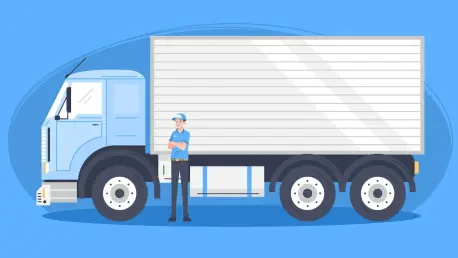The challenge: countless temperature-sensitive goods, including essential medicines and fresh produce, depend on refrigerated transportation. Yet, inefficiencies haunting the cold chain sector mean numerous resources are wasted, pushing up costs and carbon emissions alike. Imagine reefer trucks idling for hours, draining fuel while the contents remain untouched by the outside world—how can this status quo shift to align with modern demands?
Balancing Budget Constraints and Sustainability Needs
In cold chain sectors such as food and pharmaceuticals, operational efficiency is under intense scrutiny. Economic pressures demand reductions in unnecessary costs, pushing companies to explore innovative solutions. However, achieving this without sacrificing product quality presents a daunting challenge. At the same time, the transportation sector’s environmental footprint is under increasing pressure to shrink as sustainability becomes an industry imperative. The stakes are high, requiring a calculated balance between economic viability and environmental responsibility.
Reefer Management: Outdated Assumptions and Inefficiencies
Traditional reefer operations often struggle to harmonize product safety with cost efficiency. Many depend on outdated practices that prioritize continuous cooling operations, viewed as crucial for maintaining product integrity but simultaneously leading to wasteful expenditure and energy use. Studies reveal sizable inefficiencies, with anecdotal evidence and case studies showing some firms clinging to these outdated methods due to inertia rather than necessity. These antiquated practices culminate in a delicate dance where integrity and expenditure clash, exposing the need for a rethink.
Tech-Driven Transformations in Reefer Management
Experts and industry leaders underscore technology’s pivotal role in revamping reefer operations. Emerging telematics and IoT sensors enable real-time monitoring of temperature and equipment, allowing for a transition from reactive to proactive management strategies. Companies pioneering this change illustrate an empowered cold chain operation, utilizing integrated platforms that offer transparency and control over logistical processes. This technological infusion not only enhances operational control but also unlocks opportunities for cost savings and sustainability improvements.
Implementing Change: Strategies for Efficient Operations
Transitioning to optimized reefer operations demands specific strategies. Approaches such as refining precooling procedures and reconsidering operating modes present tangible opportunities for improvement. By focusing on these processes, companies can reduce pre-run times and thwart excessive continuous operation, achieving efficiencies across fuel and maintenance domains. Data-driven fleet management, leveraging analytics, offers a pathway toward informed, evidence-based decisions, fostering an environment where efficiency and integrity thrive simultaneously.
Embracing the Future: An Evolving Reefer Landscape
In moving forward, cold chain operators found success in adopting new technologies and strategies tailor-fitted to modern demands. This shift away from traditional methods not only reduced costs but also boosted sustainable practices, demonstrating the dual benefits of innovation. Operators recognized that comprehensive reefer management requires embracing technology, refining operational tactics, and maintaining dialogue around sustainability. The path for reefer efficiency has opened expansively, marked by engaging with technology while reflecting a commitment to cost-effectiveness and environmental stewardship.









